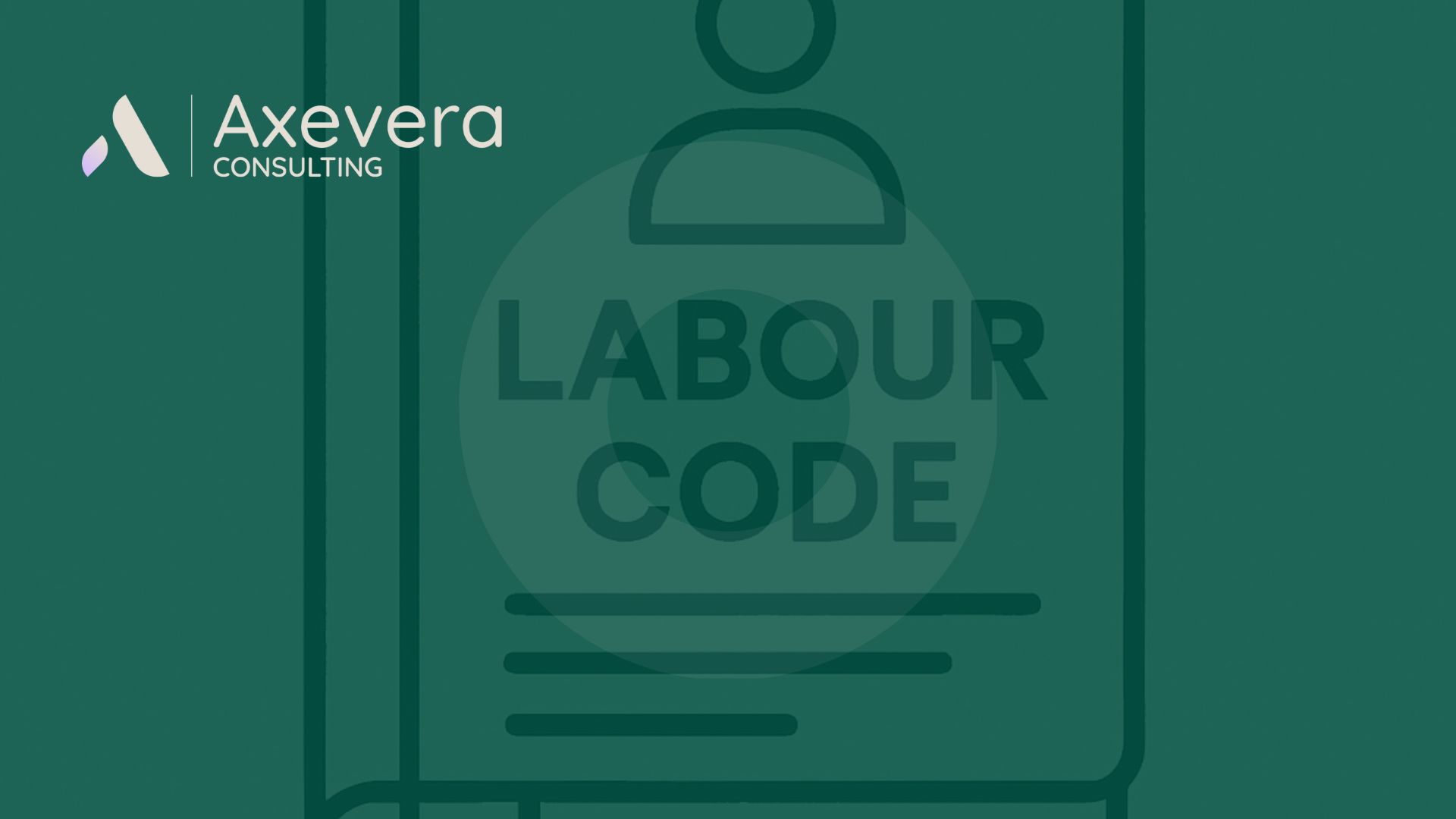
Flexi-Amendment Approved: Reform on the Way for the Czech Labour Code
At the beginning of March 2025, the Chamber of Deputies of the Czech Republic approved a significant reform of the Labour Code, known as the “Flexi-Amendment.” Following the expected approval by the Senate and the President’s signature, the amendment is set to come into force between June 1st and July 1st, 2025, with no further changes or delays anticipated.
This reform aims to make employment relationships more flexible while supporting business competitiveness and strengthening worker protections, including changes to unemployment benefits and retraining programs.
Below, we examine in detail the key changes introduced by the Flexi-Amendment.

Trial and Notice Periods: What’s Changing with the Flexi-Amendment
1. Extension of the Probation Period
With the implementation of the Flexi-Amendment, the maximum duration of the probation period is extended:
- from 3 to 4 months for regular employees;
- from 6 to 8 months for managerial staff.
Additionally, the probation period can be further extended during its course, provided there is mutual agreement between the parties. In the case of unexcused absences, the probation period is automatically extended.
2. Changes to the Duration and Start Date of the Notice Period
A significant change affects when the notice period begins. With the reform:
- The notice period will start from the date the notice is delivered, no longer from the first day of the following month.
- Example: if an employee submits their notice on March 10th, their last working day will be May 10th.
Furthermore, in cases of dismissal due to serious misconduct or insufficient performance, the minimum notice period is reduced from 2 months to 1 month.
Important Note: Many existing contract clauses are based on the previous legislation, so it is essential to update HR documentation.
3. Simplification of Dismissal Due to Work Incapacity
The Flexi-Amendment streamlines and unifies the reasons for dismissal on health grounds, removing the distinctions between:
- work-related injuries,
- occupational illnesses,
- other long-term health conditions.
Instead of the previous severance package equal to 12 months’ salary, a one-time compensation of the same amount will be introduced, covered by the employer’s mandatory insurance. This eases the financial burden on businesses while preserving employee protection.
Wages: More Digitalization, Transparency, and Flexibility
a) Electronic Delivery of Payslips
The Flexi-Amendment simplifies how payslips are delivered. Payslips can now be sent:
- via company email;
- or through other internal company systems.
Prior employee consent is no longer required for electronic delivery. However, to validate the delivery, the employee must confirm receipt within 15 days.
b) Ban on Confidentiality Clauses Regarding Pay
Another major innovation is aimed at salary transparency, in line with the European directive. Employers can no longer prohibit employees from discussing their salary or its structure.
Specifically:
- It will no longer be possible to include confidentiality clauses in contracts that label salary as “confidential information.”
- If a company imposes such restrictions, it risks a fine of up to CZK 400,000.
It is therefore recommended to review employment contracts and internal policies to avoid irregularities and sanctions.
c) Simplified Rules for Paying Wages in Foreign Currency
The reform addresses the needs of companies employing foreign nationals or workers based abroad, expanding the cases in which wages can be paid in foreign currency.
It is now permitted to agree on payment in a currency other than the Czech koruna if:
- the employee is a foreign or EU citizen without permanent residence in the Czech Republic;
- a Czech employee works or resides abroad;
- the employee incurs family or personal expenses abroad.
Increased Protection for Parents with Young Children
a) Exception to the “Three Times and You’re Out” Rule for Fixed-Term Contracts
Until now, Czech law allowed a fixed-term contract to be renewed no more than twice, for a total duration not exceeding 3 years. With the Flexi-Amendment, this rule no longer applies in cases where an employee is replacing someone on maternity, paternity, or parental leave.
This means:
- it will be possible to renew or extend the contract more than twice,
- the overall maximum limit is set at 9 years.
b) Zero-Hour Contracts During Parental Leave
Another important change is the ability to sign flexible work agreements (“zero-hour contracts”) with employees who are already on parental leave.
In practice, parents on leave will be able to:
- sign a contract for work of the same type as in their primary employment contract,
- carry out temporary or occasional tasks more freely, while maintaining their parental leave status.
c) Right to Return to the Same Job Position
The Flexi-Amendment strengthens the right to return to the original job position for parents who return early from parental leave.
Specifically, if the parent resumes work before their child turns 2, the employer is required to reinstate them in the same role and location they held before the leave.
Conclusion
The Flexi-Amendment represents a major shift in Czech labour law, striking a balance between increased flexibility for employers and new protections for employees. Companies should prepare in advance by reviewing contracts, internal regulations, and HR procedures to align with the new legal framework.
AI – generated image.
Sources: Eversheds Sutherland





